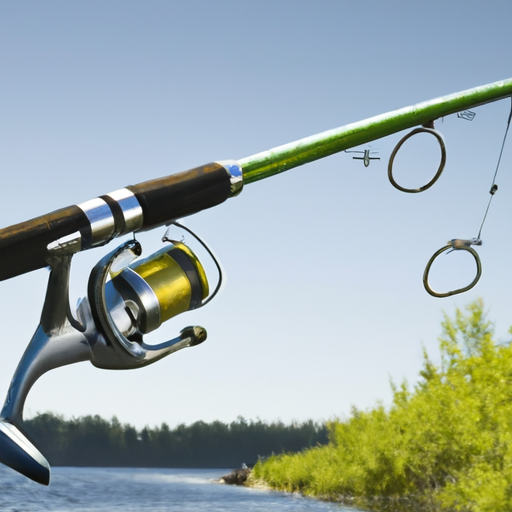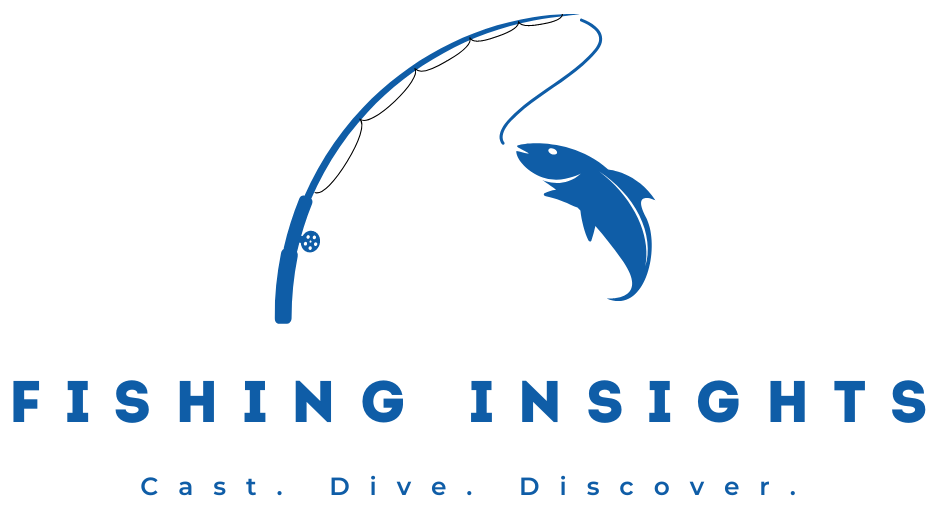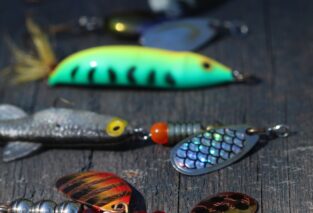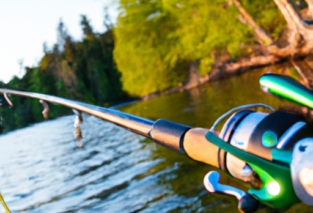Are you a fishing enthusiast eager to cast your line into the water but unsure of how to obtain a fishing license? Look no further! “How Much Is A Fishing License: A Complete Guide” is here to help. This comprehensive guide takes you through everything you need to know about fishing licenses, from the different types available to the fees and requirements associated with them. Whether you’re a seasoned angler or a beginner looking to try your hand at fishing, this guide provides all the information you need to navigate the world of fishing licenses with ease. So, grab your favorite fishing gear and get ready to explore the waters with confidence!

Types of Fishing Licenses
Fishing is a popular recreational activity that allows you to escape the hustle and bustle of daily life and enjoy the great outdoors. However, before you cast your line into the water, it’s important to understand the different types of fishing licenses that are available. There are three main types of fishing licenses to choose from: freshwater fishing license, saltwater fishing license, and combination fishing license.
Freshwater Fishing License
If you’re an avid angler who enjoys fishing in lakes, rivers, and streams, a freshwater fishing license is a must-have. This type of license grants you the permission to fish in freshwater bodies such as lakes and rivers, where you can catch a variety of species including bass, trout, catfish, and more.
Saltwater Fishing License
On the other hand, if you prefer the thrill of fishing in the deep blue sea, a saltwater fishing license is what you need. This license allows you to cast your line into coastal and ocean waters, opening up opportunities to catch species such as tuna, snapper, marlin, and many others.
Combination Fishing License
For those who enjoy the best of both worlds, a combination fishing license is the way to go. With a combination license, you have the freedom to fish in both freshwater and saltwater locations. This is perfect for anglers who love the versatility of fishing in various types of environments and targeting a wide range of fish species.
Age-Based Fishing Licenses
Fishing is a fantastic activity for people of all ages, and there are licenses specifically designed for different age groups, including junior fishing licenses, senior fishing licenses, and youth fishing licenses.
Junior Fishing License
Junior fishing licenses are typically available for children and teenagers under a certain age. These licenses allow young anglers to experience the joys of fishing under the supervision of an adult. It’s a great way to introduce kids to the sport and teach them about conservation and responsibility.
Senior Fishing License
Senior fishing licenses are designed for individuals who have reached a certain age, often 65 and older. These licenses often come at a discounted price and provide seniors with the opportunity to continue enjoying their favorite hobby while also saving some money.
Youth Fishing License
Youth fishing licenses are similar to junior fishing licenses and are tailored to specific age ranges. These licenses are typically available for individuals between the ages of 12 and 17, providing them with the freedom to fish independently while still benefiting from age-appropriate regulations and restrictions.

Residency-Based Fishing Licenses
The location where you reside can also impact the type of fishing license you need. Depending on whether you are a resident or non-resident of a particular state or region, you may require a resident fishing license or a non-resident fishing license.
Resident Fishing License
If you are a resident of the state or region where you plan to fish, you will need a resident fishing license. This type of license is typically available at a lower cost compared to non-resident licenses and may come with additional benefits and perks.
Non-Resident Fishing License
If you are visiting or temporarily staying in a state or region and want to go fishing, you will need a non-resident fishing license. Non-resident licenses often have higher fees compared to resident licenses, as they are designed to accommodate individuals who do not live in the area on a permanent basis.
Duration of Fishing Licenses
Fishing licenses are available in various durations to suit your needs and fishing habits. Whether you are looking for a short-term option or a lifetime license, there are options available for every angler.
Annual Fishing License
An annual fishing license is the most common and popular choice among anglers. As the name suggests, this type of license is valid for a full year from the date of purchase. It allows you to fish during the entire year without worrying about constantly renewing your license.
Short-Term Fishing License
If you’re planning a fishing trip but don’t want to commit to a full year of fishing, a short-term fishing license might be the perfect solution. These licenses are typically available for durations ranging from a few days to a few weeks, allowing you to enjoy fishing during your vacation or a specific fishing season.
Lifetime Fishing License
For the most dedicated anglers who plan to fish for a lifetime, some states offer the option of a lifetime fishing license. This is a one-time purchase that provides you with a fishing license for the rest of your life. While it may come with a higher upfront cost, it eliminates the need to renew your license on an annual or short-term basis.

Additional Fishing Permits
In addition to the basic fishing license, there are certain permits that you may need depending on the specific type of fishing you engage in and the species you target. These permits include a fish hatchery permit, trout stamp, salmon permit, and red drum tag.
Fish Hatchery Permit
A fish hatchery permit is required in some states if you plan to fish in waters that are stocked with fish from a hatchery. This permit helps fund the stocking of fish and supports conservation efforts to maintain healthy fish populations.
Trout Stamp
If you have a passion for trout fishing, you may need to purchase a trout stamp. This stamp is an additional fee on top of your fishing license and is specifically for anglers who wish to target and catch trout. The funds generated from trout stamp sales are often used to support habitat restoration and conservation projects for trout populations.
Salmon Permit
Similar to the trout stamp, a salmon permit is necessary if you want to pursue salmon fishing. This permit is required in certain states and gives you the authorization to fish for salmon. The fees collected from salmon permits are typically utilized for salmon conservation programs and research.
Red Drum Tag
In some coastal states, anglers who wish to target red drum, also known as redfish, may need to purchase a red drum tag in addition to their fishing license. This tag allows you to legally catch and possess red drum according to state regulations, as they are a highly valued game fish.
Fishing License Prices by State
Fishing license prices vary from state to state, with each state setting its own fees based on factors such as resident status, license duration, and additional permits. It’s important to note that prices are subject to change and may be different each year. To determine the exact cost of a fishing license in your state, it’s best to consult the official website of your state’s wildlife agency or contact a local license agent.

Discounts and Exemptions
Fishing licenses can be more affordable for certain individuals who qualify for specific discounts and exemptions. These include military and veteran discounts, disability exemptions, senior citizen discounts, and income-based discounts.
Military and Veteran Discounts
Many states offer discounted fishing licenses for active-duty military members, veterans, and their immediate family members. These discounts serve as a token of appreciation for their service and allow them to enjoy the therapeutic benefits of fishing at a reduced cost.
Disability Exemptions
In some cases, individuals with disabilities may be exempt from fishing license requirements. Each state has its own guidelines for disability exemptions, which may include proof of disability and certain documentation. These exemptions aim to provide equal access to fishing opportunities for individuals with disabilities.
Senior Citizen Discounts
As mentioned earlier, senior citizens often qualify for discounted fishing licenses. The age at which you qualify for a senior discount may vary from state to state, but it is generally around 65 years old. Senior citizen discounts not only make fishing more accessible but also encourage seniors to stay active and engaged in outdoor activities.
Income-Based Discounts
Some states offer income-based discounts for low-income individuals and families. These discounts help make fishing licenses more affordable and ensure that financial constraints do not hinder access to the sport. Qualifications for income-based discounts may vary, so it’s important to check the specific requirements of your state.
Where to Buy Fishing Licenses
Once you’ve determined the type of fishing license you need and any additional permits or discounts you qualify for, it’s time to purchase your fishing license. There are several convenient options for buying fishing licenses, including local license agents, online purchases, and state wildlife agency offices.
Local License Agents
Many sporting goods stores, bait shops, and outdoor retailers serve as local license agents. These establishments are authorized to sell fishing licenses on behalf of the state or wildlife agency. They often have knowledgeable staff who can assist you in selecting the right license and answering any questions you may have.
Online Purchase
For the ultimate convenience, most states offer the option to purchase fishing licenses online. Through the official website of your state’s wildlife agency, you can easily navigate the online license portal, select the desired license and any additional permits, and complete the purchase with a few simple clicks. Online purchases typically require a valid email address and payment method.
State Wildlife Agency Offices
If you prefer a more personalized experience or have complex licensing needs, visiting your state’s wildlife agency office is a great option. Here, you can speak directly with agency representatives who can guide you through the process, provide detailed information, and ensure that you have the right license for your fishing activities.

Rules and Regulations
To ensure the sustainability of fish populations and preserve the natural balance of aquatic ecosystems, fishing licenses come with rules and regulations that anglers must abide by. These regulations typically cover catch limits, size restrictions, fishing seasons, and bag limits.
Catch Limits
Catch limits refer to the maximum number of fish that an angler can legally catch and keep within a certain timeframe. These limits are put in place to prevent overfishing and ensure the long-term health of fish populations. It’s crucial for anglers to be aware of the catch limits for the species they are targeting and to release any fish beyond the allowed limit.
Size Restrictions
Size restrictions are another important aspect of fishing regulations. These restrictions specify the minimum and sometimes maximum size of a fish that can be legally harvested. The purpose of size restrictions is to protect juvenile fish and allow them to reach maturity and reproduce before they are caught.
Fishing Seasons
Fishing seasons determine the periods of time when certain species can be legally targeted and caught. These seasons are designed to align with the natural lifecycle of fish and protect them during vulnerable stages of reproduction and growth. It’s essential for anglers to know the specific fishing seasons for the fish they intend to catch and comply with any closures or restrictions that may be in place.
Bag Limits
Bag limits refer to the maximum number of fish that an angler can possess or transport at any given time. These limits help prevent overfishing and ensure that individuals do not take more fish than they can reasonably consume or utilize. It’s important to know the bag limits for the fish species you are targeting and adhere to them to promote sustainable fishing practices.
Renewing and Replacing Fishing Licenses
Just like any official document, fishing licenses have expiration dates and may need to be renewed or replaced under certain circumstances. Understanding the process for renewal, replacement, and transfers is crucial to maintaining a valid fishing license.
Renewal Process
When your fishing license is nearing its expiration date, you will need to go through the renewal process to obtain a new license. The steps for renewal may vary depending on your state, but they generally involve providing proof of identification, residency, and any necessary documentation. Renewing your fishing license in a timely manner ensures that you can continue fishing without interruption.
License Replacement
In the unfortunate event that you lose or damage your fishing license, it’s important to know the procedure for obtaining a replacement. This may involve contacting your state’s wildlife agency, submitting an application, and paying a small fee. Keeping your fishing license in a safe place and taking photos or making copies of it can help expedite the replacement process if needed.
License Transfers
In some cases, anglers may need to transfer their fishing license to another individual. This can occur when selling a boat with a fishing license, gifting a license to someone else, or under other specific circumstances. Each state has its own guidelines and requirements for license transfers, so it’s crucial to contact the appropriate agency to understand the process and ensure compliance.
As you can see, fishing licenses play a vital role in ensuring that fishing remains a sustainable and enjoyable activity for everyone. By understanding the different types of licenses, discounts available, and the rules and regulations associated with fishing, you can fully immerse yourself in the world of angling and make the most of your fishing experiences. So go ahead, grab your fishing gear, and get ready to make unforgettable memories on the water. Happy fishing!





